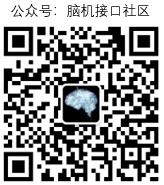1.Decomposing channel data
为了检测ERSP(event-related spectral perturbation)和ITC(inter-trial coherence) , 这里进行如下操作:Plot > Time frequency transforms > Channel time-frequency:

操作后,会弹出如下对话框,在该对话框中Channel number填写1,在Bootstrap significance level 填写 0.01,其他默认选择。

点击OK,得到如下结果:

得到的结果分为两个子图,上方是ERSP子图,下方是ITC子图。
ERSP子图:该子图左方的panel是基线的平均功率谱,而各个时间点的ERSP包络线。而top image是相对基线,每个时间点、每个频率的频谱功率改变(event-related changes in spectral power (from pre-stimulus baseline) at each time during the epoch and at each frequency (< 50 Hz))。
ITC子图:A significant ITC indicates that the EEG activity at a given time and frequency in single trials becomes phase-locked (not phase-random with respect to the time-locking experimental event).
2.Computing component time/frequency transforms
由于各个独立成分更可能直接反应大脑的EEG source,因此这里将对独立成分进行时频分解。
具体操作:Plot > Time/frequency transforms > Component time-frequency

操作后,会出现下面界面,在下面界面中Component number填入10,
Sub epoch time limits填入 -500 1000,选择Use FFT,Bootstrap
significance level选择0.01。点击Ok

点击OK后出现下面的结果:

说明:这步操作选择FFT,是因为相对wavelets而言,选择FFT可以计算更低的频率。
本文章由脑机学习者Rose笔记分享,QQ交流群:903290195
更多分享,请关注公众号
